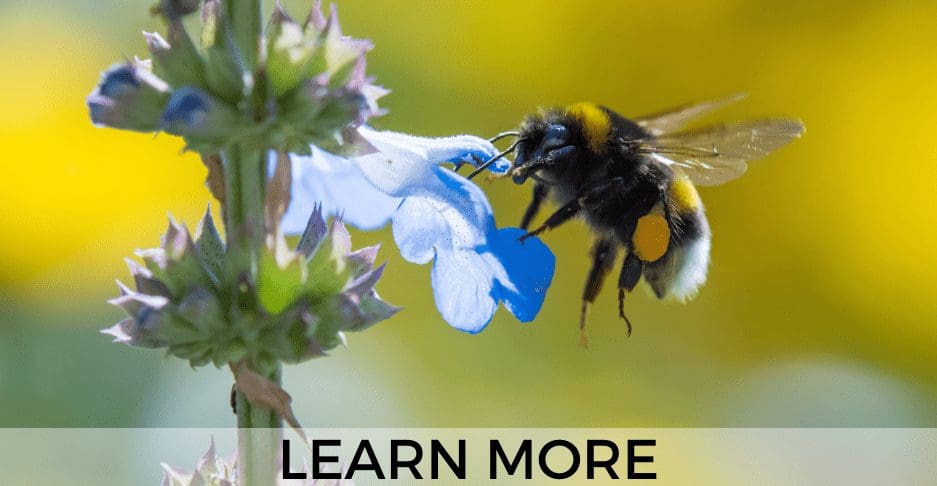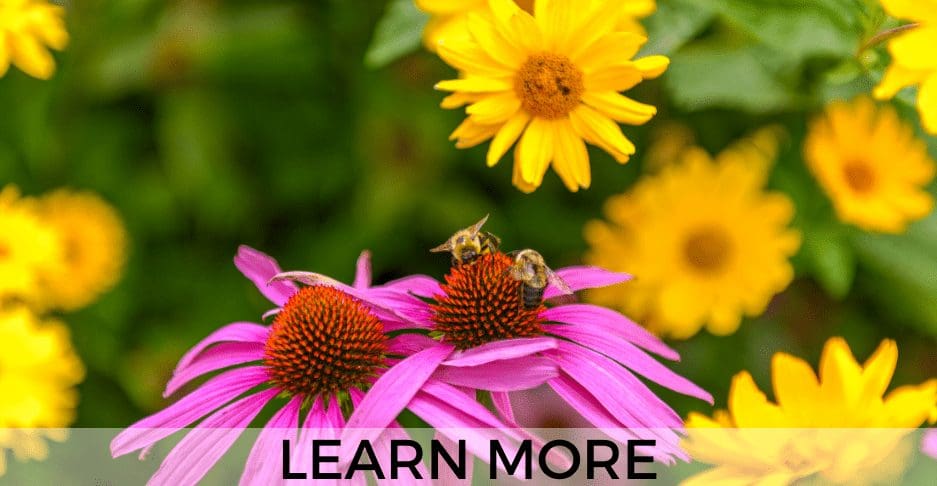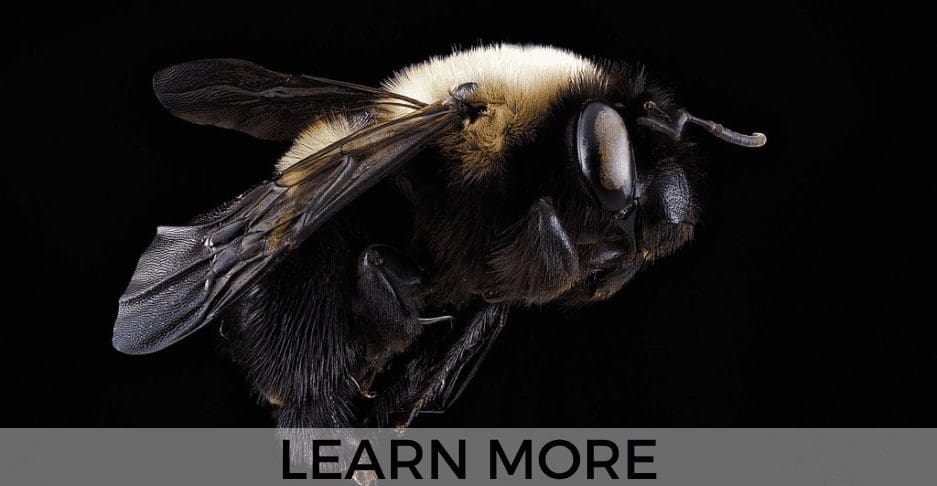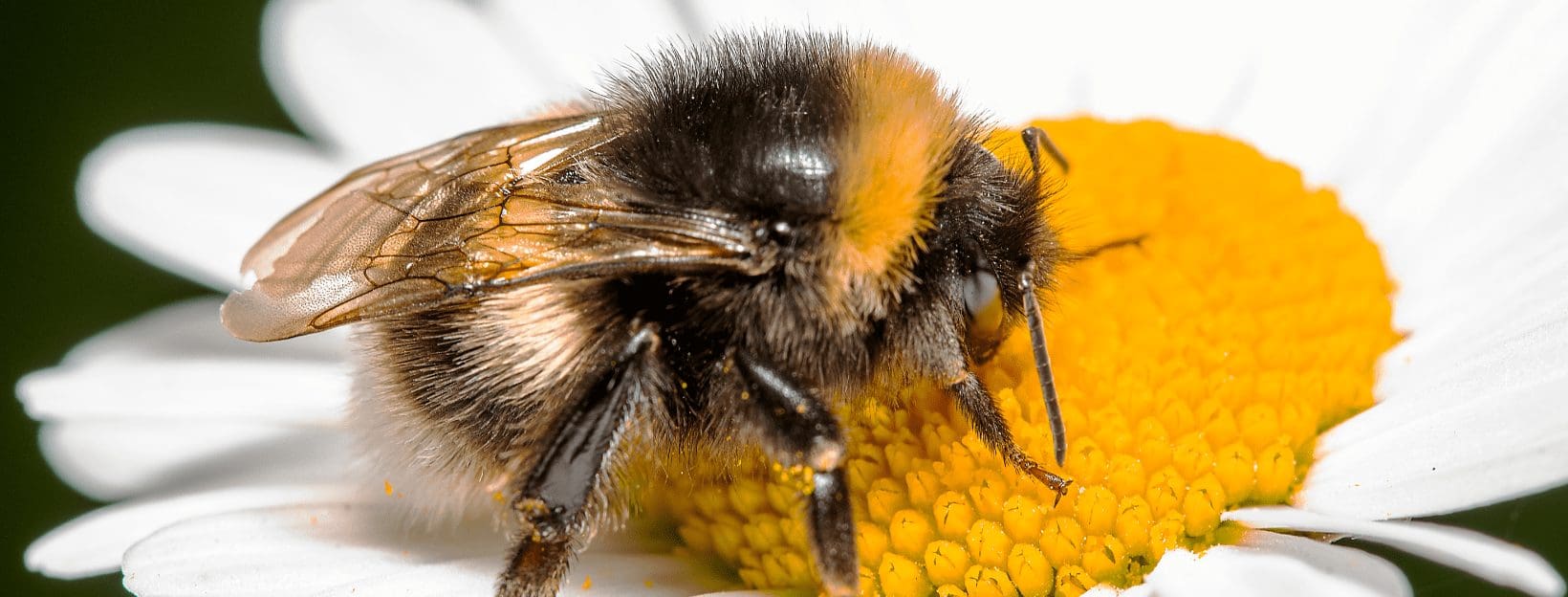
Introduction to Native Bees
Native bees are an essential part of our ecosystem, playing a crucial role in pollination and maintaining biodiversity. Unlike honeybees, which are introduced species and essentially livestock, native bees are naturally occurring and have co-evolved with native plants. While there are over 4,000 native bee species across the US, there are over 400 documented species native to Virginia.

Importance of Native Bees
- Pollination: Native bees are highly efficient pollinators, often more effective than non-native honeybees, especially for specific plant species. Additionally, these bees are actively seeking out pollen, as it is an essential food source for rearing their young!
- Biodiversity: They contribute to the health and diversity of ecosystems by pollinating a wide variety of plants, including many wildflowers and food crops.
Threats to Native Bees
Despite their importance, native bee populations are declining due to habitat loss, pesticide use, climate change, and competition from non-native species like honeybees. It’s crucial to take action to protect and support native bee populations.
Specialist Bees and Pollination Syndromes
- Specialist Bees: Some native bee species are specialists, meaning they have evolved to pollinate specific plant species.
- Pollination Syndromes: Plants and bees often have specialized adaptations that facilitate pollination. This includes flower shape, color, scent, and the production of nectar guides to attract specific pollinators. Understanding this is important when selecting plants for gardens.
How can you Support Native Bees?
Supporting native bees involves understanding their roles, recognizing the threats they face and actively creating habitats that provide food and nesting sites. By planting native plants, avoiding pesticides and creating diverse and bee-friendly gardens, we can help maintain and even boost the populations of these vital pollinators. In doing so, we support not only the bees themselves but the entire ecosystem that relies on their pollination services.
Four ways to support Native Bees
Habitat
Preservation
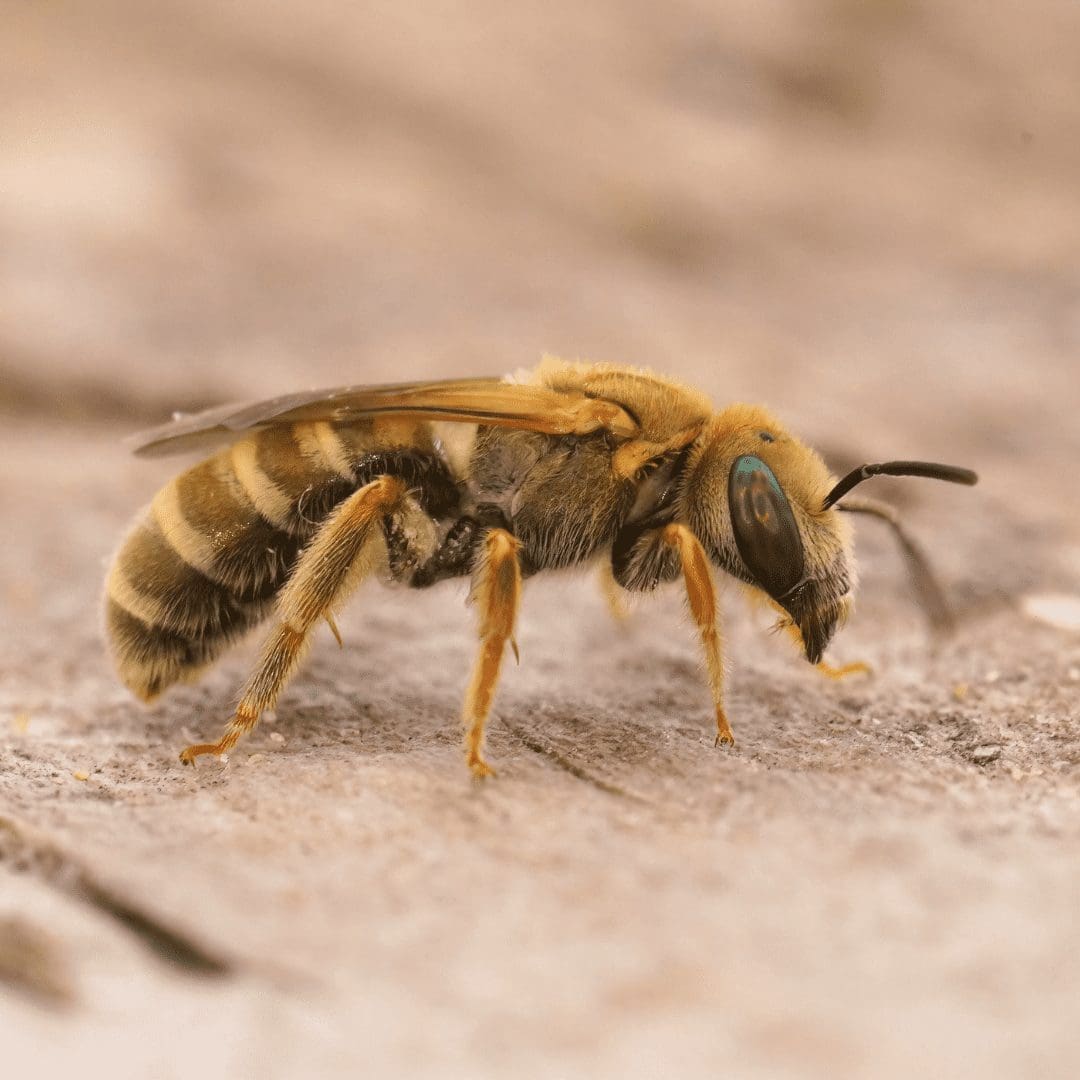
Protecting and restoring natural habitats is crucial for native bee conservation. This includes maintaining diverse landscapes with a variety of flowering plants, and advocating for the protection of existing green spaces in our communities.
Native Plant Gardening

Planting native flowers and shrubs in gardens and landscapes provides essential food sources and nesting sites for native bees (and other wildlife).
Reducing
Pesticide Use

Minimizing or eliminating the use of pesticides helps protect native bee populations from harmful chemicals.
Educating the community

Helping people understand the importance of bees is important to motivating people to protect them and fostering appreciation for their role in nature. Native bees are not aggressive, and majority of native species are solitary nesters with no hive to defend, and therefore less likely to sting.
The Importance of Supporting Native Bee Conservation
Native bees are vital to the health of our ecosystems and agricultural productivity serving as essential and efficient pollinators.
Native bees contribute to the pollination of approximately 80% of flowering plants globally.
Studies show that a single mason bee can do the work of 100 honeybees in terms of pollination efficiency.
In the U.S., native bees provide an estimated $3 billion worth of pollination services.
More than 50% of native bee species in North America are experiencing population declines, with 1 in 4 species at risk
of extinction.
Bee bread is a natural product obtained from the fermentation of bee pollen mixed with bee saliva and flower nectar inside the honeycomb cells of a hive.
Bumblebees, through buzz pollination, are essential for crops like tomatoes and blueberries, increasing fruit set by up to 200%.

